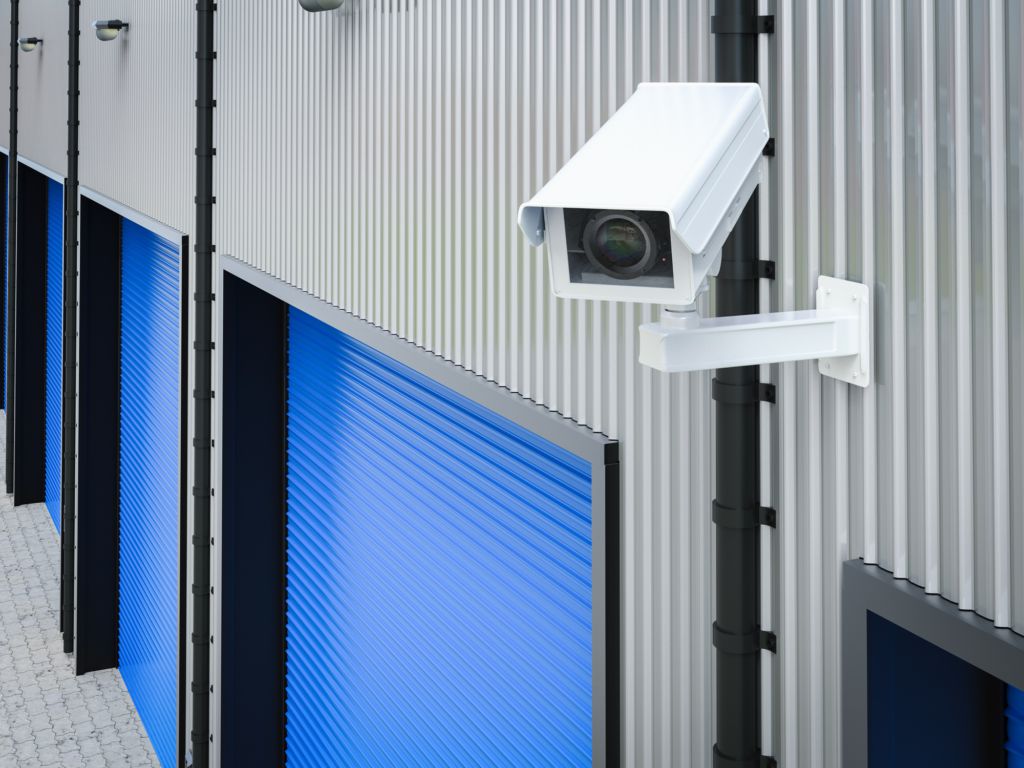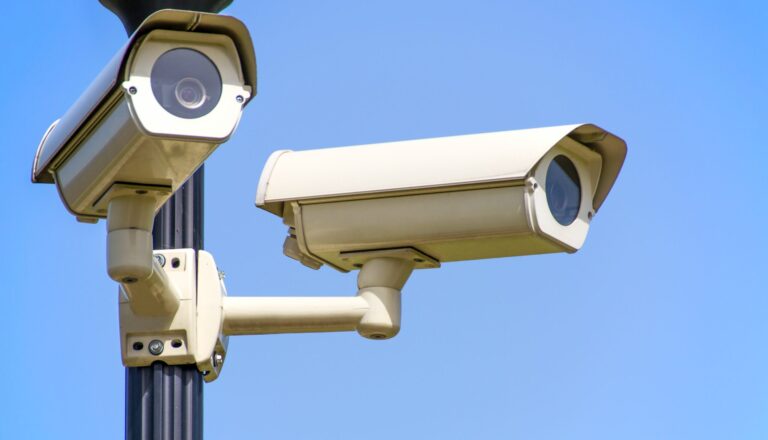In this Guide to Virtual Security Guards, we discuss the benefits and drawbacks of using virtual gate guards, as well as how to choose the right provider and protect against cybersecurity risks. We also provide case studies and compare virtual gate guards to traditional security guards. Whether you are considering virtual gate guards or simply want to learn more about the technology, this comprehensive guide has you covered.

Virtual Security Guards are also known as virtual gatekeepers, virtual security guards, or remote security guards. Virtual security guards are a relatively new technology. They allow businesses and other organizations to monitor and secure their properties remotely.
These systems use a combination of cameras, sensors, and other technologies. They are working together to let users keep track of who is coming and going from their property. Furthermore, the proactive security team can take immediate action if necessary. Additionally, you have a remote security team that monitors your properties in real time.
Advantages Over Traditional Security Guards
On the plus side, virtual security guards offer several advantages over traditional security guards. First and foremost, they can be much more cost-effective, as they don’t require the same level of staffing or training as human guards. Additionally, virtual security guards can cover a much wider area. They don’t have to be physically present to do their job.

This means businesses can use them to secure large properties, such as warehouses or manufacturing plants, without hiring multiple guards.
Another advantage of virtual security guards is that they can be highly customizable. Many of these systems allow users to set up custom alerts and notifications to be notified in real time if something unusual is happening on their property. This can be especially useful for businesses that must be alerted to potential threats. Additionally, other emergencies that require immediate action.
What To Consider In A Virtual Security Provider
Overall, it’s clear that virtual security guards offer several advantages, particularly in terms of cost-effectiveness and flexibility. However, it’s essential to carefully consider these systems’ potential drawbacks before deciding whether they are the right choice for your business. By weighing the pros and cons carefully, you can make an informed decision about whether or not remote security guards are the right security solution for your needs.
What should you look for from a Virtual Security Guard provider?
When looking for a Virtual Security Guard Provider, there are a few key factors to consider:
- Reliability: Choosing a provider with a track record of reliable service is essential. You want to ensure that the system you choose will be up and running when you need it and that it won’t be prone to frequent malfunctions or technical issues.
- Customization options: Look for a provider that offers customizable alerts and notification settings, as this will allow you to tailor the system to your specific needs.
- Coverage area: Make sure to choose a provider that can cover the site you need to secure, whether a small parking lot or a large warehouse.
- Customer support: Look for a provider that offers good customer support, as you may need to troubleshoot issues or make changes to your system down the line.
- Price: Consider the overall cost of the system, including any upfront fees and ongoing maintenance costs. Make sure to compare prices from multiple providers to ensure you are getting the best deal.
Considering these factors, you can find a Virtual Security Guard provider that meets your needs and fits your budget.
Integration With Other Security Systems
Integration with other security systems is an essential factor to consider when choosing a Virtual Security Guard provider. By integrating the Virtual Security Guard system with other security systems, businesses can create a more comprehensive security solution that covers their needs.
For example, a Virtual Security Guard system could be integrated with an access control system to restrict access to certain areas of a property. It could also be combined with an alarm system to alert authorities in an emergency.

Integrating virtual security guards with other security systems has a few key benefits. First, it can provide a more seamless and cohesive security solution. All systems can work together to provide better protection. Second, it can save businesses money. Remote security guard systems may be able to purchase a single system that covers multiple security needs. This simplifies and reduces costs rather than buying separate designs for each purpose.
When looking for a Virtual Security Guard provider, it’s essential to ask about their integration capabilities. Some providers may offer out-of-the-box integration with other security systems, while others may require custom integration work. By understanding the integration options available, businesses can choose the Virtual Security Guard system that best fits their needs.
Cloud-based vs. On-Premise Systems
There are two main types of virtual security guard systems: cloud-based and on-premises.
Cloud-based systems hosted by the provider and accessed via the internet. Businesses do not need to purchase or maintain any additional hardware or software to use the system. Cloud-based systems are more convenient and easier to set up as they do not require particular infrastructure.
On-premises systems, on the other hand, are hosted on the user’s servers or equipment. Businesses must purchase and maintain their hardware and software to use the system.

On-premises systems are generally more secure, as the user has complete control over their hardware and data. However, they can be more expensive to set up and maintain, as businesses need to purchase and maintain their equipment.
When deciding between a cloud-based and on-premises Virtual Security Guard system, there are a few key factors to consider. Cloud-based systems may be more convenient and easier to set up, but they may be less secure, as users need more control over their data.
On-premises systems may be more secure, but they can be more expensive to set up and maintain. Ultimately, the choice between cloud-based and on-premises systems will depend on the specific needs and budget of the business.
Legal and Regulatory Considerations
There are several legal and regulatory considerations to take into account when using virtual security Guards. These considerations may vary depending on the location and type of business, but some common issues include the following:
- Privacy laws: Virtual security guards often use cameras and other sensors to monitor activity on a property. Businesses should ensure that their video surveillance systems comply with local privacy laws. Some states may restrict the use of cameras or require businesses to post signs informing people that they are being monitored.
- Data protection laws: Virtual Security Guard systems may collect and store data, such as video footage or sensor readings. It’s vital to ensure that this data is stored and transmitted securely and complies with data protection laws.
- Liability: The business may be held liable if something goes wrong with the Virtual Security Guard system. This is better than holding the community liable for issues like a malfunction or a security breach. It’s essential to understand the potential liabilities associated with these systems. Choose a reliable provider with a good track record to protect your community.
By understanding and complying with the relevant legal and regulatory requirements, businesses can ensure that they are using remote security guards in a responsible and compliant manner.
Virtual Security Guards vs. Traditional Security Guards. Which is better?
Comparing remote security guards to traditional security guards is essential when deciding which type of security solution is right for your business. While remote security guards offer several advantages, standard security guards also have their own set of benefits.
On the plus side, virtual security guards are generally more cost effective than traditional security guards, as they do not require the same level of staffing or training. Additionally, virtual security guards cover a much wider area because they do not need to be physically present to do their job. This can be especially useful for businesses that need to secure large properties or multiple locations.

However, traditional security guards have some advantages as well. For one thing, they can physically intervene in the event of an emergency or security breach, which virtual security guards cannot do. Additionally, some people may feel more reassured by the presence of a human security guard, as they can provide a sense of authority and reassurance.
Ultimately, the choice between virtual security guards and traditional security guards will depend on the business’s specific needs. By considering the pros and cons of each option, companies can choose the security solution that best fits their needs.
Conclusion
In conclusion, virtual security guards offer a number of advantages for businesses looking to secure their properties. These systems can be cost-effective, customizable, and able to cover large areas. However, there are also potential drawbacks to consider, such as technical issues and the inability to physically intervene in an emergency. This is why it’s important to choose a security and technology company that can provide you with a customized security solution.






